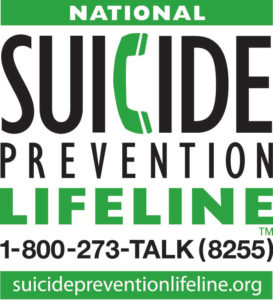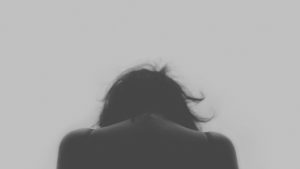Suicide Alert: Spring Can be Deadly
Suicide – A Leading Cause of Death in the US, and on the Rise
According to Centers for Disease Control and Prevention suicide rates in the U.S. have risen nearly 30% since 1999. Nearly half of people who died by suicide had a known mental health condition. Although there are many groups at risk, middle-age adults had the highest increase.
Does media coverage of celebrity suicides increase awareness or suicide contagion?
News coverage of recent celebrity suicides has increased awareness on a growing crisis that claims the lives of nearly 50,000 people in the U.S each year. Calls to the National Suicide Prevention Lifeline have spiked 25% since the reported suicides of Anthony Bourdain and Kate Spade.
However while increasing awareness is positive, Mental health professionals agree that high-profile celebrity suicides could possibly lead to “suicide contagion”, and that we should all be aware of the risk factors and what to do if we believe someone is in crisis.

If you or someone you know might be suffering from depression or having suicidal thoughts, the National Suicide Prevention Lifeline can help. Call 800-273-TALK (8255). The 24/7 toll free hotline is available to anyone in suicide crisis or emotional distress. Trained volunteers connect with those suffering and offer emotional support and guidance for help.
Suicide Rate Spikes in the Spring
Springtime is here. That means sunshine, elevated moods, and an overall feeling of happiness and “rebirth” for so many of us. Spring awaken the senses. The birds are chirping, flowers are blooming, and the earth seems to come to life again. Spring tends to make people happy, energetic and alive. However, those suffering from depression, grief, and/or anxiety may actually feel worse.
Suffering from Depression or Grieving?
For someone who is grieving or suffering from varying forms of depression, it will take much more than some nice weather or birdsong to alleviate one’s symptoms. The springtime cheeriness can be quite frustrating to those suffering from bouts of despondency, feelings of hopelessness, or the dark cloud of despair, especially when you see others happily enjoying springtime, while your own mood remains dark and gloomy.
In the wintertime, when everyone seems to be in a collectively glum mood, it is easier for sufferers of any of the symptoms of depression to write off their mood to the bad weather, and expect to feel better once the days are longer and filled with sunshine. However, it can be quite frustrating when the sun does come out, and those around you begin to feel happy and cheery while you still feel as though you’re at the bottom of some endless pit, wondering if there is anything else to life. This only causes these feelings of depression to heighten.
 Unfortunately, it is not uncommon for these feelings of desperation to cause many to start using drugs and alcohol to comfort this deep, searing pain. This only results in the sufferer feeling even more awful, isolated, and depressed. And when the sun does come up in the morning, the dark mood of the previous night is not only still there, but is even darker. This can have quite a hopeless effect on these sufferers.
Unfortunately, it is not uncommon for these feelings of desperation to cause many to start using drugs and alcohol to comfort this deep, searing pain. This only results in the sufferer feeling even more awful, isolated, and depressed. And when the sun does come up in the morning, the dark mood of the previous night is not only still there, but is even darker. This can have quite a hopeless effect on these sufferers.
To raise awareness about this devastating phenomenon, and to provide help and hope, please read on and share.
If you are experiencing symptoms of depression, such as despair, trouble sleeping, lack of appetite, feelings of worthlessness and/or hopelessness, lack of motivation, feelings of isolation, no longer enjoying activities that you used to enjoy, or thoughts of suicide, especially if you have suffered a concussion or other brain injury at any point in your life, contact Dr. Diane®. There is help and hope through our 5 Prong Approach of Integrative Therapy.
Suggested Treatment Methods
Psychopharmacology:
Symptoms of depression, especially those that bring about suicidal thoughts, tend to improve when traditional psychotherapy and cognitive behavioral therapy are used alongside appropriate medications. A psychopharmacologist (a psychiatrist who specializes in using drugs to treat psychiatric disorders) can work with you to determine which medications and dosages would be best for you.
Psychotherapy:
Psychotherapy, also known as “talk therapy”, is one of the most common and effective treatments for psychiatric disorders, especially those that cause thoughts of suicide. Psychotherapy includes techniques to increase awareness, within your choices of thought, feeling or action. Psychotherapy can increase the sense of well-being and can better manage discomfort or distress. Psychotherapy is very effective in decreasing suicidal thoughts, especially when used in conjunction with psychopharmacology.
Biofeedback and Neurofeedback:
Biofeedback is a form of behavioral medicine that utilizes information gained by monitoring skin temperature, blood pressure, heart rate, and other body conditions to encourage control over the normally involuntary nervous system through conditioning and relaxation.
CES Machine:
CES (Cranial Electrotherapy Stimulation), is an FDA approved device to treat depression, anxiety and insomnia. It quiets the over-stimulated (reactivity) of the area of the brain (Limbic System), where the symptoms of anxiety, sleep problems, depression, and chronic pain are focused. If you are interested in purchasing a CES device, please visit our online store.
Massage:
Massage Therapy is a relaxing and rejuvenating treatment, especially when you are experiencing symptoms of depression. Massage reduces tension in all parts of the body, promoting better sleep and greater overall well-being.
Nutrition Education:
A balanced diet is not only necessary for optimal body function, but is crucial for optimal brain function as well. Eating foods that are not beneficial for your brain, such as sugar and alcohol, keep your brain from working at its best possible level and may affect your moods. Proper diet, including brain healthy foods, may alleviate symptoms of depression, especially if you have had a traumatic brain injury, such as a concussion, stroke, or aneurysm. We can work with you to create a custom, brain-healthy diet.
Acupuncture:
Acupuncture is a complementary approach used in traditional Chinese Medicine. Acupuncture, like all energy healing methods, uses the body’s own qi (natural energy flow) to restore the body’s natural energy balance.
Reiki:
Reiki is a method of energy healing that is currently practiced all over the world and gaining in popularity. Reiki utilizes a natural universal energy that helps to balance the client’s system and assists healing at all levels. Because it is relaxing and supports the healing process, it can help treat a wide variety of issues, such as depression. Reiki is also effective for stress reduction, for increasing overall vitality, and for treating injuries.
Qi Gong and Polarity Therapy:
Qigong is a system of exercise developed in China that incorporates physical postures, breathing techniques, and focused intentions to balance the energy in the body to alleviate various symptoms, such as those involved with depression.
Polarity therapy is a natural healthcare system based on the idea that each individual has an internal blueprint that forms the bases of every aspect of life, including personal achievement and illness. The goal of this system is to target specific blocks in an individual’s internal energy, and then treat the consequential symptoms by getting the person to become more in tune with their internal blueprint. When the body has returned to a balanced state, it is better able to heal itself.
Homeopathic Remedies:
Homeopathy is a form of alternative medicine that was developed by Samuel Hahnemann in 1796. This approach is based on the view that symptoms provide information about the body’s attempts to heal itself. Homeopathic treatment involves the use of remedies that are made from naturally occurring substances, that would cause particular symptoms if taken in large amounts, but that stimulate the curing of those same symptoms if taken in minute amounts in a highly diluted form. It is important to have a customized homeopathic treatment plan created for each individual, based on their own personal needs and symptoms.
Bach Flower Remedies
Dr. Bach discovered that certain flowers emit frequencies that affect specific symptoms, such as anxiety (remedy: Aspen) or racing thoughts (remedy: White Chestnut), and known fears (remedy: Mimulus). From his training in homeopathy he discovered that each of the 38 flowers essences, which are the frequencies, match specific symptoms. It is important to work with a Bach Flower Practitioner, such as Dr. Diane®, to create a customized Bach Flower treatment plan for your specific symptoms.
To learn more about how these methods can help alleviate your symptoms of depression, contact us, or schedule a consultation with Dr. Diane®.
Other Suggested Methods
- If you or a loved one have had suicidal thoughts or are in crisis, please call 1-800-273-TALK (8255), National Suicide Prevention Lifeline
- Join a self-help or support group through your local hospital or community mental health center.
- Participate in group therapy with an understanding mental health professional.
- Seek online one-to-one support through forums, chats, or online bulletin boards.
- Find a support group through the National Alliance on Mental Illness (NAMI).
- HelpGuide.org
Stop Hurting Today. There is Help and Hope.
If you have suffered a traumatic brain injury, including a concussion, stroke, or aneurysm, at any point in your life, you may also be experiencing symptoms of PCS (Post Concussion Syndrome). PCS may heighten pre-existing conditions, especially depression. Dr. Diane® can help! Schedule a consult or call 800-500-9971.
PLEASE USE THE SHARE BUTTONS AT THE TOP OF THIS PAGE IF YOU THINK THIS CAN MAKE A DIFFERENCE IN SOMEONE’S LIFE! Thank you.
There is a Way!™
– Dr. Diane


